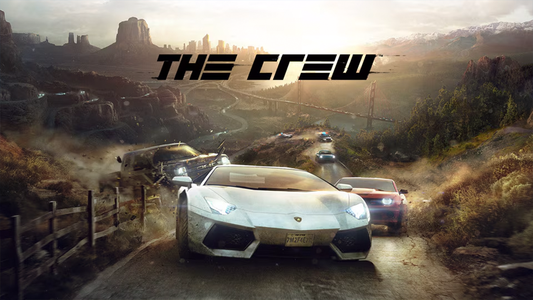"4X" strategy games like Civilization are beloved to their audience -- but you can't exactly call them accessible. The human work of city-building, war-making, becomes spreadsheet labor, in a sense; drab, forbidding hexes become shorthand for the rise and fall of nations. Amid the mathematical sprawl, you either know what you're looking at or you don't, and when you don't, you don't want to.
Amplitude Studios co-founder Romain de Waubert de Genlis is a massive strategy fan; before launching the successful independent studio that most recently launched the hit Endless Legend, he produced the Might & Magic games at Ubisoft.
Back then, he played multiplayer strategy titles fervently and regularly with Mathieu Girard, with whom he'd go on to start Amplitude. The pair became familiar with the bewilderment: Friends staring at their impenetrable mosaics of muddy tiles, their expressions silently accusatory: You spend eight hours a day on this?
"Most of the games we liked in strategy were ugly as hell, and we never understood why."
"Most of the games we liked in strategy were ugly as hell, and we never understood why," de Waubert de Genlis says. "They tend to be made by few creators with analytical but not very artistic minds."
De Waubert de Genlis and Girard thought they could bring some freshness to the genre. By the time they left Ubisoft in 2010 along with some like-minded colleagues, the developers had become so senior they no longer did the kinds of hands-on work they enjoyed. "We were more like bosses, away from why we wanted to join video games," de Waubert de Genlis recalls. "And the games we loved were not interesting for bigger publishers, so we had no choice but to leave and create our own company."

With them came veteran art director Corinne Billon (Rayman and other Ubisoft titles), whom de Waubert de Genlis describes as eager for the challenge to work within a paradigm other than the absolute realism commonly desired by high-end publishers. "We wanted our games to be artistic," he explains.
"If you fail to create the depth of the strategy, you can make it as pretty as you want and no one will buy it."
"There's quite a lot of stuff we think we can do around a strategy game that isn't about strategy," de Waubert de Genlis suggests. "Although if you fail to create the depth of the strategy, you can make it as pretty as you want and no one will buy it."
With the goal of bringing something new to the genres they loved -- and of having a closer relationship to player feedback after years spent behind the "iron curtain" of traditional publishing -- de Waubert de Genlis and team raised significant investment from friends and family, as well as generous support from the French government, which de Waubert de Genlis believes sees games as economically important in the arenas of both technology and art.
Right from the beginning, Amplitude Studios offered community participation and feedback tools to the serious fans of their work who followed their journey from Ubisoft. Participating among Valve's earliest "guinea pigs" (2006's Dark Messiah of Might & Magic, in collaboration with Arkane) in the service offering that would become Early Access, the studio had internalized very quickly the value of letting development take place in front of the desired audience, and of letting players weigh in on things. Selling a game while it was still in alpha was once a radical and troubled idea; now it's a new business environment, and, Amplitude's "Games2Gether" program still lets fans follow its work.
"We knew we couldn't exist otherwise," says de Waubert de Genlis. "We had no money for marketing -- the only money we had was to make a game, and nothing besides that. So we hired another guy from Ubisoft who was in marketing first, and then an associate producer. His idea was that working together with players is a good thing, but you need to give tools to our players so it's easy for them to participate. They need to be able to voice their opinion in one click."
"Working together with players is a good thing, but you need to give tools to our players so it's easy for them to participate. They need to be able to voice their opinion in one click."
To some extent, de Waubert de Genlis says learning to relinquish the need for control over all aspects of the game has made him a better designer. On the other hand, there are some healthy limits on how much the team relies on the community: Players don't vote on "backbone" design issues, but on elements they'd like to see implemented next. And de Waubert de Genlis has learned only to offer voters options in cases where he himself would be pleased with any outcome -- he's found groups tend to choose the most classic or familiar choices rather than the most interesting or innovative ones.
"Now when a game comes out, we basically know how good it is -- or how bad it is, but there are no surprises. It was so stressful before: Finish a game, wait a month to print CDs, and then it comes out, and then people tell you it sucks? It's much better now: You can try some things and see how people react, and when something sucks, you have the time to fix it."
The team's philosophy and methodology were set from the beginning; Amplitude made a small splash with dynamic space-strategy Endless Space. But Endless Legend feels like a further evolution of the team's philosophy, starring an uncompromising approach to style and interface that turns classic strategy into an experience that feels beautiful, inviting and alive.
With the explicit goal of making a visually-distinct hex game, de Waubert de Genlis says the team was inspired by board games and elegant moving pieces like in the Game of Thrones opening sequence to create a "toy universe" players would want to touch. They incorporated numerous historical, cultural and architectural references so that the compelling v
No tags.





































